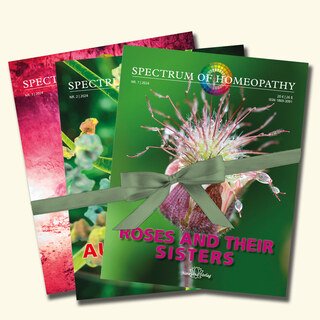Drittanbieter:
Beschreibung
Google Analytics ist ein Webanalysetool, das Websitebesitzern hilft, die Interaktionen der Nutzer auf ihrer Website zu verstehen und zu analysieren. Es sammelt Daten über Websitebesuche, darunter Informationen darüber, wie Nutzer auf eine Website gelangen (z. B. über Suchmaschinen, soziale Medien oder direkt), wie sie auf der Website navigieren, welche Seiten sie besuchen und wie lange sie auf diesen Seiten verweilen. Diese Informationen werden dann in verschiedenen Berichten dargestellt, die Einblicke in das Nutzerverhalten geben und es Websitebetreibern ermöglichen, ihre Website zu optimieren und die Nutzererfahrung zu verbessern. Die Daten werden auch zur Personalisierung und zur effektiven Aussteuerung von Werbeanzeigen genutzt.
Diensteanbieter
Google Ireland Limited
Link zur Datenschutzerklärung
https://policies.google.com/privacy
Daten
Browser-Informationen; Klickpfad; Datum und Uhrzeit des Besuchs; Standort-Informationen; Internetdienstanbieter; Geräteinformationen; Referrer URL; Bildschirmauflösung; Mausbewegungen; Anonymisierte IP-Adresse; Besuchsdauer; Kontodaten; Absprungraten; Downloads; Verhaltensdaten; App-Aktualisierungen
Zweck
Analyse; Marketing; Personalisierung; Remarketing; effektive Aussteuerung von Werbeanzeigen
Rechtliche Grundlage
"EU: Art. 6 Abs. 1 s. 1 lit. a DSGVO, Art. 49 (1) a) DSGVO
Schweiz: Art. 45c (b) FMG, Art. 17 Satz 1 a) DSG"
Ort der Verarbeitung
Europäische Union
Beschreibung
Dieses Cookie wird von Google gesetzt und unter dem Namen doubleclick.com gespeichert. Dieses Cookie wird verwendet, um zu verfolgen, wie oft ein Benutzer eine bestimmte Anzeige ansieht, was hilft, den Erfolg einer Kampagne zu messen und den durch die Kampagne generierten Umsatz zu berechnen. Diese Cookies können nur von der Domäne gelesen werden, für die sie festgelegt wurden, sodass sie beim Surfen auf anderen Websites keine Daten verfolgen.
Diensteanbieter
Google Ireland Limited
Link zur Datenschutzerklärung
https://policies.google.com/privacy
Daten
Browser-Informationen; Datum und Uhrzeit des Besuchs; IP-Adresse; Geräteinformationen; Referrer URL; Besuchte Seiten; Werbekennung; Besuchsdauer; Inhalt an dem der Nutzer interessiert ist; Webseiten-Nutzung; IP Adresse; Sonstige Angaben zur Nutzung von Websites
Zweck
Analyse; Marketing; Personalisierung; Remarketing; effektive Aussteuerung von Werbeanzeigen
Rechtliche Grundlage
"EU: Art. 6 Abs. 1 s. 1 lit. a DSGVO
Schweiz: Art. 45c (b) FMG, Art. 17 Satz 1 a) DSG"
Ort der Verarbeitung
Europäische Union
Beschreibung
Dies ist ein Conversion-Tracking-Dienst. Dieser Dienst zeichnet auf, was passiert, wenn ein Nutzer eine Website besucht und auf eine Anzeige klickt, die wir über Google Ads schalten. Bei Conversions messen wir, ob Nutzer auf einer von uns angegebenen Website eine bestimmte Aktion ausführen (z. B. einen Dienst abonnieren), nachdem sie auf eine von uns über Google Ads geschaltete Anzeige geklickt haben. Auf diese Weise können Benutzer nachvollziehen, welche Keywords, Anzeigen, Anzeigengruppen oder Kampagnen zu der gewünschten Benutzerinteraktion geführt haben.
Diensteanbieter
Google Ireland Limited
Link zur Datenschutzerklärung
https://policies.google.com/privacy
Daten
Datum und Uhrzeit des Besuchs; IP-Adresse; Referrer URL; Browser-Typ; Browser-Sprache; Cookie ID; Nutzerverhalten; Angeklickte Anzeigen; Web-Anfrage
Zweck
Analyse; Inhalte ausliefern; Verbesserung des Dienstes; Cloud Computing; Bot-Schutz; Messung des Erfolgs der Marketing-Kampagnen; Messung des Erfolgs der Marketing-Kampagnen; Conversion Tracking; Verwaltung der Kundendaten; Kundenverhaltensanalyse; personalisierte Werbeinhalte; Conversion-Optimierung
Rechtliche Grundlage
"EU: Art. 6 Abs. 1 s. 1 lit. a DSGVO
Schweiz: Art. 45c (b) FMG, Art. 17 Satz 1 a) DSG"
Ort der Verarbeitung
Europäische Union
Beschreibung
Es ist ein Tag-Management-System. Mittels Google Tag Manager können Tags zentral über die Benutzeroberfläche eingebunden werden. Tags sind kleine Codeteile, die Aktivitäten verfolgen können. Scriptcode für andere Tools wird über den Google Tag Manager eingebunden. Der Tag Manager kann steuern, wann bestimmte Tags aktiviert werden.
Diensteanbieter
Google Ireland Limited
Link zur Datenschutzerklärung
https://policies.google.com/privacy
Daten
Aggregierte Daten über die Tag-Auslösung; Aggregierte Daten zum Auslösen von Tags; Keine Daten gesammelt
Zweck
Tag-Verwaltung; Funktionalität; Generieren von Leads; Verwaltung von Website-Tags; Verwalten von Website-Tags; Netz Analyse; Tags und Skripte auf dieser Webseite verwalten; Gewährleistung einer komfortablen Nutzung unserer Website
Rechtliche Grundlage
"EU: Art. 6 Abs. 1 s. 1 lit. a DSGVO, Art. 49 (1) a) DSGVO
Schweiz: Art. 45c (b) FMG, Art. 17 Satz 1 a) DSG"
Ort der Verarbeitung
Europäische Union
Beschreibung
Dies ist ein Conversion-Tracking-Dienst. Dieser Dienst zeichnet auf, was passiert, wenn ein Nutzer eine Website besucht und auf eine Anzeige klickt, die wir über Microsoft Ads schalten. Bei Conversions messen wir, ob Nutzer auf einer von uns angegebenen Website eine bestimmte Aktion ausführen (z. B. einen Dienst abonnieren), nachdem sie auf eine von uns über Google Ads geschaltete Anzeige geklickt haben. Auf diese Weise können Benutzer nachvollziehen, welche Keywords, Anzeigen, Anzeigengruppen oder Kampagnen zu der gewünschten Benutzerinteraktion geführt haben.
Diensteanbieter
Microsoft Corporation
Link zur Datenschutzerklärung
https://privacy.microsoft.com/de-de/privacystatement
Daten
IP-Adresse; User-Agent-Daten; Referrer URL; URL; Browser-Sprache; Anzahl der Besuche; Reaktionszeiten der Seite; Angesehene Werbeanzeigen; Besuchsdauer; Absprungraten; Digitale Signatur; Microsoft Klick-ID; Seitentitel; Farbtiefe des Bildschirms; UET-ID-Tag; Umwandlungen; Beschäftigungs-Metriken
Zweck
Analyse; Conversion Tracking; Remarketing; Universelles Event-Tracking
Rechtliche Grundlage
"EU: Art. 6 Abs. 1 s. 1 lit. a DSGVO
Schweiz: Art. 45c (b) FMG, Art. 17 Satz 1 a) DSG"
Ort der Verarbeitung
Europäische Union



 2.738.485 Kunden aus 193 Ländern
2.738.485 Kunden aus 193 Ländern




 Wunschliste
Wunschliste

